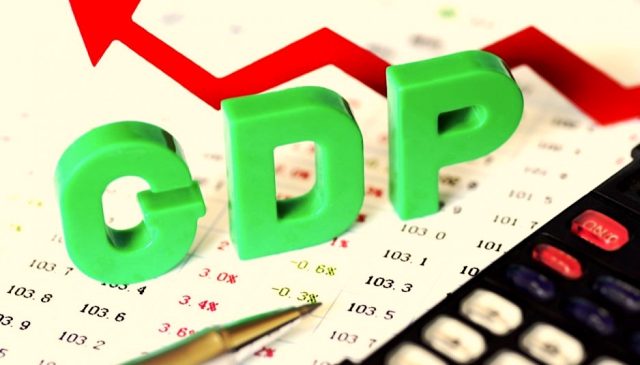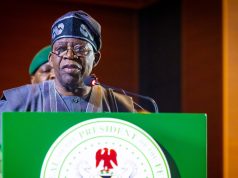Nigeria’s gross domestic product (GDP) stood at N372.8 trillion ($243.7 million) in nominal terms in 2024 after the statistics office altered the process for computing the size of the economy to include new sectors and reflect current realities.
That was 29.9 per cent higher than the International Monetary Fund (IMF)’s estimate of $187.6 billion.
Nigeria lost its position as the continent’s biggest economy recently after a roughly 70 per cent slide in the value of the naira against the dollar between June 2023 and the first half of 2024 forced it to the fourth spot behind South Africa, Egypt and Algeria.
A couple of devaluations within the period caused Nigeria’s GDP to weaken sharply in dollar terms. Nigeria’s last GDP rebasing was in 2014, when 2010 was set as the base year.
South Africa’s current GDP, according to the IMF, is $400.2 billion, Egypt’s is $383.1 billion, while Algeria’s is $264.9 billion.
With 2019 as the base year, the rebased GDP for the year stood at N205.1 trillion in 2019, N213.6 trillion for 2020, N243.3 trillion for 2021, N274.2 trillion for 2022 and N314 trillion for 2023.
Opting for 2019 as the base year derived from the relative economic stability recorded during the period, compared to the next couple of years when the economy faced reverberations from the coronavirus outbreak, even plunging into a recession in 2020.
The update was conducted using data from National Business Sample Census & Survey of Establishments, National Agriculture Sample Census & National Agricultural Sample Survey and Nigeria Living Standard Survey (2019 and 2023).
Nigeria’s last GDP rebasing was in 2014, when 2010 was set as the base year.
The change in the methodology for calculating the size of the economy was conducted to include emerging and promising sectors such as e-commerce, mining/quarrying, pension fund, marine economy, culture and tourism, among others.
The rejig indicated that the structure of the economy had changed reasonably over time, notably with a marked jump in the contributions of agriculture and the services sector and a decline in the industry sector’s share of GDP in nominal terms.
“Digital activities, pension fund administrators and the informal sector activities, where more than 90 per cent of Nigerians are employed, are now being measured,” said Nigeria’s statistician-general, Adeyemi Adeniran, at a media conference in Abuja on Monday.
The current GDP size leaves Nigeria way behind the ambition of becoming a $1 trillion economy in the next five years. The economy, which expanded by 3.4 per cent in 2024, has been projected by the IMF to grow at the same pace this year.
Following the rebasing, the debt-to-GDP ratio, which compares the country’s public debt to is GDP and measures its ability to repay its debt by comparing its borrowing to what it produces, has dropped from 51.8 per cent to 41.1 per cent. The maximum threshold set by the Fiscal Responsibility Commission is 40 per cent.
READ ALSO: GDP Rebasing: Shettima worried over information gap between NBS, states
“The higher nominal GDP figure has now pushed the total debt-to-GDP ratio down to around 40 per cent, compared to 52 per cent previously. We believe this could be positive in boosting investor confidence, as the metric is widely used in assessing sovereign debt ratings,” Omobola Adu, lead economist at CSL Stockbrokers, told PREMIUM TIMES.
“However, in terms of tax-to-GDP, the higher GDP figure is going to make it challenging for the government to meet their 18 per cent target without higher tax rates.”
The analyst expects Nigeria to find it hard to achieve a $1 trillion economy over the next couple of years, considering that the economy is required to expand at a cumulative annual growth rate of about 30 per cent and have its currency appreciate significantly for the dream to come true.
Support PREMIUM TIMES’ journalism of integrity and credibility
At Premium Times, we firmly believe in the importance of high-quality journalism. Recognizing that not everyone can afford costly news subscriptions, we are dedicated to delivering meticulously researched, fact-checked news that remains freely accessible to all.
Whether you turn to Premium Times for daily updates, in-depth investigations into pressing national issues, or entertaining trending stories, we value your readership.
It’s essential to acknowledge that news production incurs expenses, and we take pride in never placing our stories behind a prohibitive paywall.
Would you consider supporting us with a modest contribution on a monthly basis to help maintain our commitment to free, accessible news?
TEXT AD: Call Willie – +2348098788999









